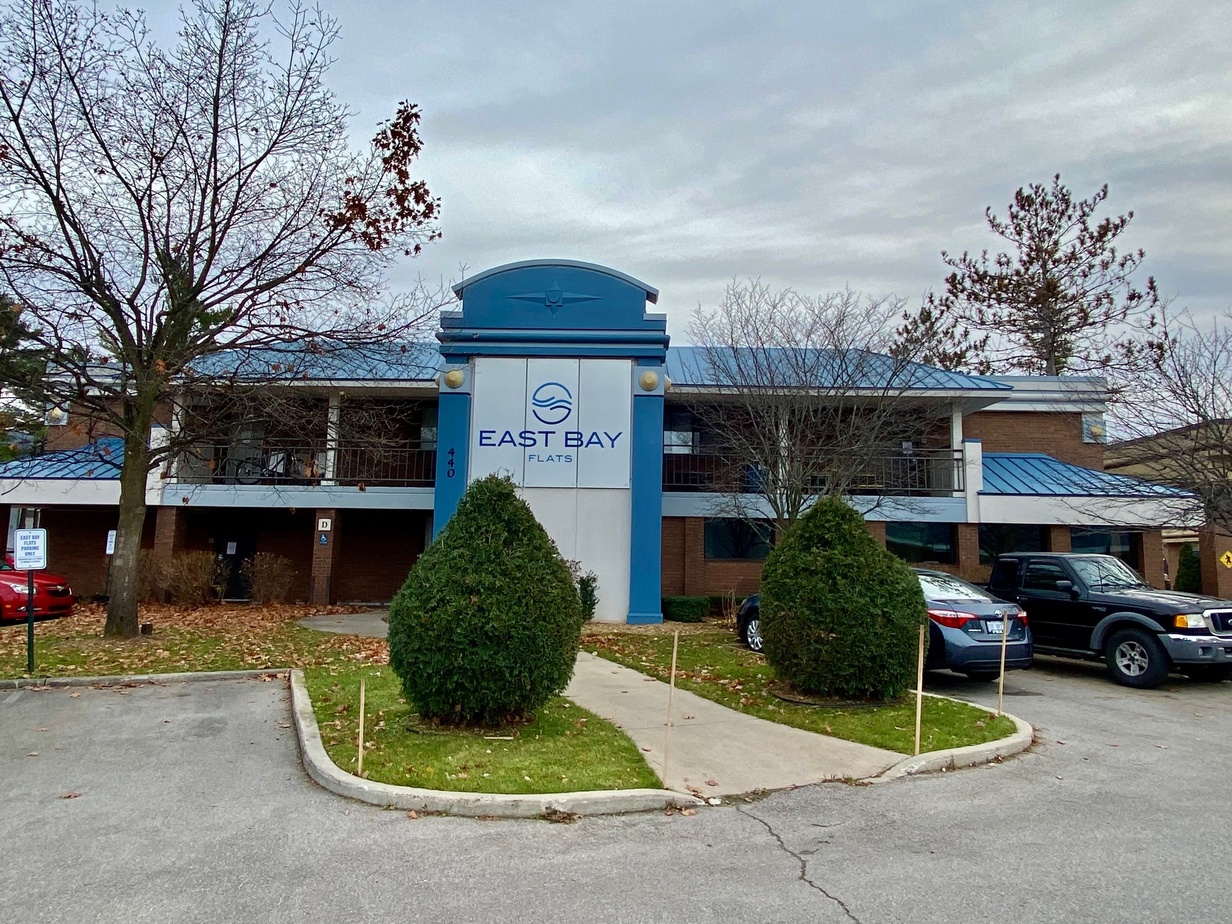
City Commissioners to Consider Funding Supportive Housing, More Homelessness Solutions
By Beth Milligan | May 6, 2024
Traverse City commissioners will vote tonight (Monday) to approve $360,000 in funding for Goodwill Northern Michigan to move 27 individuals experiencing homelessness into permanent supportive housing at East Bay Flats by January – with 17 of those individuals to secure apartments by August. That’s one of several solutions to address local homelessness that will be presented to commissioners for consideration at their 7pm meeting at the Governmental Center.
City commissioners previously approved a tax break through a payment-in-lieu-of-taxes (PILOT) agreement for Goodwill to convert East Bay Flats – an affordable housing development on Munson Avenue – into 100 percent permanent supportive housing. Apartments will be geared toward those earning 60 percent or below of area median income (AMI) who are homeless, have a disability, or are fleeing domestic violence. Goodwill Director of Housing & Homeless Services Nora Dunlop said in a previous memo that all leases for existing tenants would be honored, with units transitioned over for individuals experiencing homelessness as they become available.
Goodwill was notified in March it was successful in applying for state funding assistance for the project. However, the earliest that rental assistance will actually become available is June 2025, according to minutes from an April 25 Goodwill board meeting. That leaves approximately a one-year gap in which Goodwill could start placing individuals experiencing homelessness into apartments but doesn’t have the rental assistance to do so. Goodwill board members unanimously agreed to ask the city for $360,000 to help cover that gap.
“This is a great opportunity to leverage the long-term impact of East Bay Flats with a gap funding of rental assistance that would immediately provide permanent housing for those experiencing homelessness in our community,” the meeting minutes state. “Once the rental assistance from (the state) starts, it is for at least the next 15 years and likely 30 years. A small investment would go a long way!”
Goodwill estimates it could move between three and five individuals each month into East Bay Flats, prioritizing individuals who are chronically homeless first. Chronic homelessness is defined as a “a homeless individual with a disability who lives either in a place not meant for human habitation for twelve months, or on at least four separate occasions in the last three years,” according to city meeting materials. Funding assistance from the city would help move 17 individuals into apartments by the end of August and another 10 by January, for a total of 27 individuals placed into permanent supportive housing. City Manager Liz Vogel supported approving the funding request in a memo to city commissioners.
“The proposed permanent supportive housing, located at East Bay Flats, represents a beacon of hope for those who have long endured the hardships of homelessness,” she wrote. “As Goodwill awaits (state) funding, we find ourselves at a critical juncture – a moment where decisive action can make a profound difference in the lives of our most vulnerable community members. The funding request of $360,000 is not just an investment; it's a lifeline for those desperately seeking stability and security. By allocating this budget, we can set in motion a transformative process that will have immediate and tangible effects.”
If supportive of the allocation, commissioners would vote to amend their 2023-24 budget to increase budgeted expenses by $360,000 in the city’s economic development fund. The city commission has “complete discretion” in determining how dollars in that fund are spent, Vogel notes. At least five affirmative votes are required to approve the funding. “This is more than just a financial allocation,” Vogel wrote to commissioners. “It's an investment in human potential and dignity.”
Taking steps to address homelessness – particularly within city limits at the Pines, the burgeoning homeless encampment off Eleventh Street – appears to be a highlight in Vogel’s 2024-25 budget, which will be presented to commissioners for the first time tonight. Though they’ll receive the draft budget, they’re not expected to discuss it in depth until their May 13 meeting. That will be followed by a public budget hearing on May 20 and a vote to approve the budget on June 3 (commissioners could also hold another study session on May 28 if they need more budget discussion prior to the approval vote).
Vogel attached a presentation to her budget memo for city commissioners called “Housing & Homelessness: A Path Forward in 2024.” That presentation calls for taking a “holistic approach” to addressing homelessness in Traverse City through key steps including “public outreach,” “short-term triage,” “mid and long-term strategies,” and “strategic planning.”
On the public outreach front, the city plans to work with local partners including the Traverse Area District Library, Northwestern Michigan College, and the Human Rights Commission on a summer read program centered on Gregg Colburn’s book “Homelessness is a Housing Crisis.” That program will lead up to a capstone event with the author as a keynote speaker. A community workshop on affordable housing, financing, and legislative strategies is also planned for June 18 at the City Opera House.
Short-term triage includes working with local partners to fund $50,000 in services to address public health and safety at the Pines. Two restrooms and sinks are expected to be installed this month to address sanitation at the encampment. Solar-powered benches with phone-charging stations will also be installed. That’s in addition to security cameras going in near the dumpster area at the Pines and more trash cans being installed in the NoBo neighborhood.
Mid and long-term goals focus on city funding for projects, including adding another community police officer in the 2024-25 budget – assigning one to the Pines/Central Neighborhood and another to NoBo/Boardman Neighborhood. Funding for an additional police social worker and for community court – a proposed “specialized court program designed to address the legal issues of individuals experiencing homelessness in a supportive and rehabilitative environment” – are also included in the 2024-25 budget, according to Vogel. Long-term, the city should continue to support more permanent supportive housing like East Bay Flats as well as PILOT agreements that cover such housing, according to Vogel.
Finally, Vogel called for better linking strategic planning to the city’s budget. That includes defining “both the short-term actions and long-term objectives needed to address homelessness” and “ensuring that each allocated budget item directly contributes to specific milestones and outcomes.” City officials should establish priorities “that streamline where and how funds should be allocated, ensuring efficient use of resources,” she wrote. Vogel concluded by recommending creating a “robust monitoring and evaluation framework” for the city, which would allow commissioners and staff to track the city’s progress moving forward in addressing homelessness compared to its stated goals.
Comment






